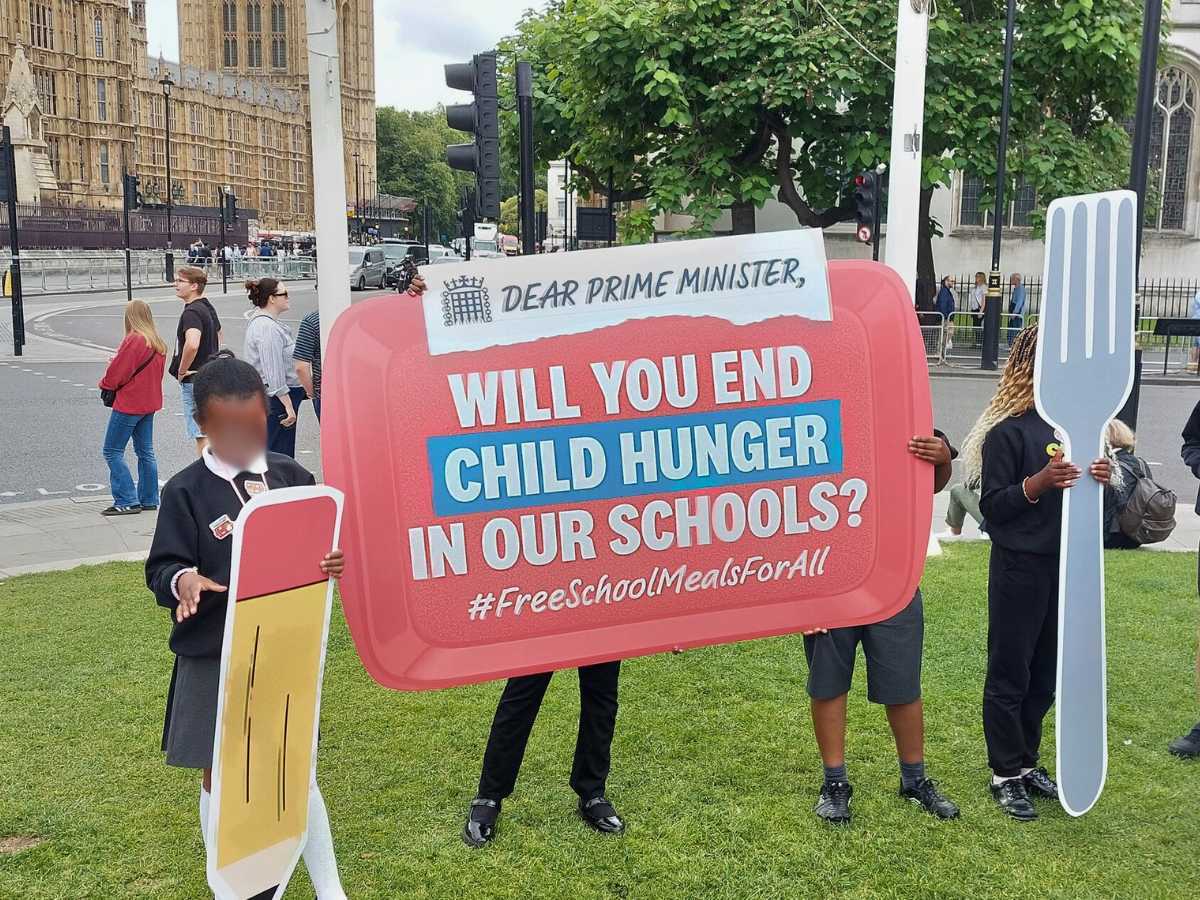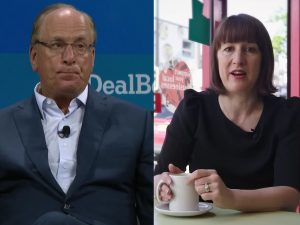On Tuesday 23 July, campaigners, politicians, and trade unions gathered at parliament to call on the new Labour Party government to provide #FreeSchoolMealsForAll. You’d think, given the evidence, that giving all primary and secondary children free school meals would be a sure-fire move from Keir Starmer’s government.
‘Free School Meals For All’: campaigning at parliament
It shouldn’t need saying, but providing free school meals to all primary and secondary school children in England is a crucial measure that can significantly improve the health, well-being, and educational outcomes of millions of students.
Currently, the entitlement to free school meals is limited, leaving many children from low-income families without access to this essential support. Expanding this program to include all students would address food insecurity, promote equality, and enhance academic performance.
So, the National Education Union (NEU)-powered campaign No Child Left Behind organised a rally outside parliament on 23 July:
📣Today 200+ people are in Parliament Square to demand that the new Government end child hunger in schools.
Teachers, parents, pupils, MPs and civil society, we’re all backing #FreeSchoolMealsforAll@CPAGUK @NEUnion @ParentKind @SAPHNA @The_TUC @TheBDA @chances_equal @SWU_UK pic.twitter.com/sj9ewNqLka
— No Child Left Behind (@NoChildBehindUK) July 23, 2024
It was well attended – with other campaign groups and charities lending their support:
We are here today supporting @NoChildBehindUK #FreeSchoolMealsForAll campaign. pic.twitter.com/DdPi5qfRnm
— Children’s Food Campaign (@Childrensfood) July 23, 2024
🪧 AEP & @SWU_UK General Secretaries show their support for the @NoChildBehindUK campaign for free school meals for primary school children 👏🏼 #FreeSchoolMealsforAll pic.twitter.com/JLT8qUrx9U
— Association of Educational Psychologists (@AEPsychologists) July 23, 2024
Some Labour MPs put their heads above the parapet to call on their government to act:
Earlier today I joined teachers, parents, pupils, fellow MPs & campaigners at @NEUnion’s #FreeSchoolMealsforAll event in Parliament Square to demand an end to child hunger in schools. #RightToFood pic.twitter.com/2Qhxlkrsrj
— lan Byrne MP (@IanByrneMP) July 23, 2024
MP and UNISON member @KimJohnsonMP speaking in favour of #FreeSchoolMealsForAll at today’s Westminster event with @NoChildBehindUK. Kim is also tackling child poverty by tabling an amendment today to lift the two-child benefit cap. pic.twitter.com/SGdYLopETi
— UNISON in Schools (@UNISONinSchools) July 23, 2024
Thank you to MP @zarahsultana for highlighting the injustice of 4 million children in poverty and going hungry.
Universal access to free school meals gives every child a hot meal, removing any stigma and benefitting all.#FreeSchoolMealsforAll @NoChildBehindUK pic.twitter.com/3bXI1P6odm
— Coram (@Coram) July 23, 2024
Of course, these people were right to call on Labour to act – as the situation and the evidence shows just why the government needs to.
Entrenched poverty and inequality
As of 2022, approximately 4.3 million children in the UK live in poverty, accounting for around 31% of all children. In England, about 1.9 million children are eligible for free school meals, but this leaves a substantial number of children who are still in need but do not meet the eligibility criteria. This is because of Universal Credit’s tight rules around free school meals.
The current system fails to cover children from working-poor families who earn just above the threshold, resulting in many children missing out on the benefits of free meals.
Food insecurity is a pressing issue that also affects children’s ability to learn and thrive.
According to a report by the Food Foundation, 14% of households with children experienced food insecurity in 2021. Children who are hungry or malnourished are less likely to concentrate in class. This in turn leads to poorer educational outcomes.
By providing free school meals to all children, England can ensure that every child receives at least one nutritious meal a day. This is fundamental for their physical and cognitive development.
Promoting equality, enhancing performance
Free school meals for all would also promote equality among students.
The current system creates a visible divide between those who receive free meals and those who do not. This potentially leads to stigma and social exclusion. By offering free meals to every child regardless of their background, schools can foster a more inclusive environment where all students are treated equally.
This universal approach would help eliminate the shame and embarrassment that some children might feel. It would encourage better social integration and a sense of belonging.
Research has consistently shown that well-nourished children perform better academically. A study by the Institute for Social and Economic Research found that children who received free school meals made more progress in school than those who did not.
Proper nutrition is linked to improved concentration, better behavior, and higher attendance rates. All of these contribute to better educational outcomes. By ensuring that all children have access to nutritious meals, schools can create a more level playing field and help close the achievement gap.
‘An investment in all our futures’
Experts in nutrition and education advocate strongly for the expansion of free school meals.
Dr Mary Bousted, former joint general secretary of the NEU, argues that:
a universal free school meals program would be a game-changer for education in England. It would remove the barriers that hunger creates and allow all children to engage fully in their learning.
Similarly, Dr Megan Blake, a food security expert at the University of Sheffield, emphasises the long-term benefits:
Investing in free school meals for all is an investment in the future of our country. Well-fed children are healthier, more focused, and better equipped to succeed academically and socially.
Overall, as the No Child Left Behind campaign says:
We are living through the greatest cost of living crisis in a generation, and too many families with young children are being pulled into poverty.
Free school meals for every child will put money back in parents’ pockets. That’s money they can use to pay for other essentials for their children, from heating and food at home to hobbies and after-school clubs.
Free school meals: do it now, Labour
Implementing free school meals for all primary and secondary school children in England is a necessary step toward addressing child poverty, promoting equality, and enhancing educational outcomes.
With a significant number of children living in poverty and many more experiencing food insecurity, a universal free school meals program would ensure that every child has access to the nutrition they need to thrive.
By investing in the health and well-being of our children, we invest in the future prosperity of our society.
You can support the No Child Left Behind campaign. Use its template to write to your MP here. Also, sign its open letter here.
Featured image via NSSN – X




